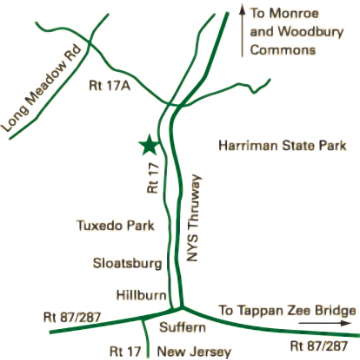You will need to consider the following:
- The length and width of the area to be screened.
- The desired height of the screening.
- The amount of sunlight the area receives.
- The moisture content of the area.
- The drainage in the area.
- Are there any physical pressures such as road salt, high wind or deer?
This holds true for all types of plantings. The worst thing you can do is plant in the wrong area.
Evergreen screening plants:
Arborvitae (Thuja) – They form a narrow screening for a sunny area. There are several popular cultivars with varying colors, widths, heights, and textures. They are not deer resistant. This should be taken into consideration when selecting a screening plant. Below please find some of the more popular selections.
- Emerald Green and Pyramidalis are narrow, grow to 20’+ tall and have a light green color. They would be planted 24”-30” on center.
- Dark American and Green Giant are wider, grow to 40’+ tall and have a dark green color. They would be planted 24”-30” on center.
- Techny and Elegantissima are wider but not as tall as the other varieties. They grow 15-20’ and are a dark green with a golden tint. They would be planted 48” on center.
Junipers (Juniperus) – There are many types of junipers (cedars) that are used for tall screening in a narrow sunny environment. They are not deer resistant. Below please find some deer resistant selections.
- Eastern Red Cedar grow to 30’+ tall and is the most common and is native to our area.
- Blue Haven and Wichita Blue grow to 20’+ tall and are bluish.
- Mountbatten grow to 20’+ tall and is a light green.
- There are many other cultivars.
Spruce, Pine, Fir and Hemlock – These types of evergreens mature in the 50’+ range at maturity. They make a nice screening where you have room to grow them. They can be maintained with pruning into a tight hedgerow. This requires diligent pruning. They can also be planted in staggered rows. It is a more natural look. Hemlocks, Douglas fir, and Norway spruce can tolerate some shade but will thin out. All are best in the full sun. The spacing of these trees will depend on your patience level.
Norway (Picea abies), White (Picea glauca), Serbian (Picea omorika) and Colorado blue spruce (Picea pungens) offer the best deer resistance. Please note that if environmental pressures are high enough all are susceptible to deer damage. Douglas fir (Pseudotsuga menziesii), Hemlock (Tsuga canadensis) and White Pine (Pinus strobus)are prone to deer damage. Deer pressure should be kept in mind when selecting a screening. There are other species available as well.
Hollies (Ilex opaca) – There is many types of upright hollies that are available for screening. They offer very nice foliage and the females produce a berry set in the fall and winter. They are tolerant of shade but very sensitive to deer pressure and windburn. A male holly is needed for berry production. Spacing depends on your patience level.
- American holly is native to our area and can grow in 30’+. They have a nice berry set and can be maintained into screening.
- Blue hollies grow to the 15’+ range. They have a nice berry set
- Nellie Stevens holly grow to the 20’+ range. They have beautiful green foliage; a nice berry set and is a full dense plant. They need to be planted in a sheltered area in our region.
Deciduous screening plants:
Privet, Viburnum, Dogwood, Lilac, Forsythia and Willow shrubs lose their leaves. There are many varieties of each with different sizes, leaf color, flowering time, fragrance, wet site adaptable, shade tolerant etc. They are sun to part shade plants. The more shade the less flower and foliage. The dogwoods, lilacs and some viburnum are susceptible to deer pressure.
- Privet is the most common type of hedging. They can grow 15’+ tall and 10’+ wide. They are semi-evergreen in certain locations and are tolerant of a wide variety of conditions.
- Viburnum has a wide array of flowers, sizes, fragrances and site conditions.
- Red twig dogwoods (Cornus) are very diverse because they can handle wet sites as well as dry and offer an array of different leaf and stem colors. They grow 10’-15’ tall.
- Lilacs (Syringa) make a very nice screening with beautiful fragrant flowers and they come in a variety of different colors. They grow 6’-12’ tall.
- Willow shrubs (Salix), specifically the white willow offers beautiful foliage and is wet site tolerant. They grow 25’+ tall and wide.






